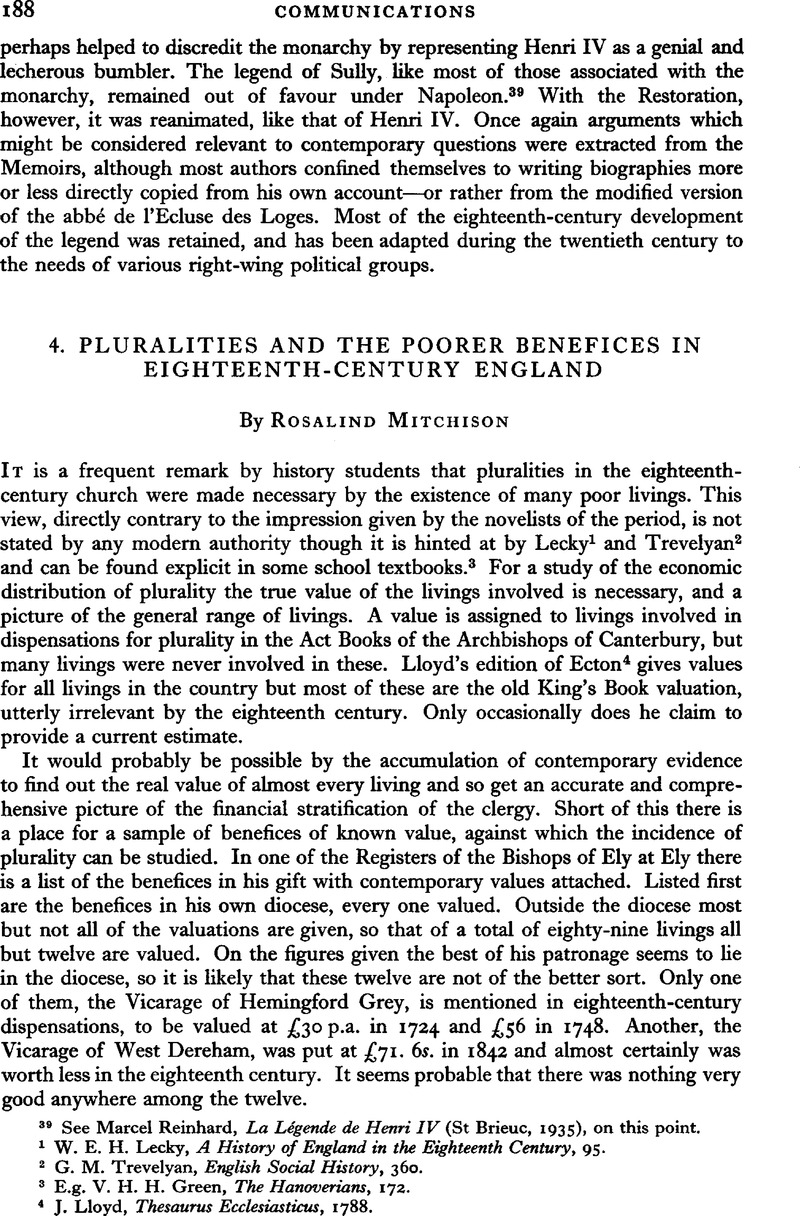No CrossRef data available.
Article contents
4. Pluralities and the Poorer Benefices in Eighteenth-Century England
Published online by Cambridge University Press: 11 February 2009
Abstract

- Type
- Communications
- Information
- Copyright
- Copyright © Cambridge University Press 1962
References
1 Lecky, W. E. H., A History of England in the Eighteenth Century, 95.Google Scholar
2 Trevelyan, G. M., English Social History, 360.Google Scholar
3 E.g. Green, V. H. H., The Hanoverians, 172.Google Scholar
4 Lloyd, J., Thesaurus Ecclesiasticus, 1788.Google Scholar
5 Hartshorne, A. (ed.), Memoirs of a Royal Chaplain (1905), 138.Google Scholar
6 Lloyd, , op. cit. 274Google Scholar
7 Sykes, N., Church and State in England in the eighteenth century (1934), 214.Google Scholar
8 Lloyd, , 242.Google Scholar
9 Ibid. 259.
10 Ibid. 250.
11 Ibid. 250.
12 Ibid. 239.
13 21 Henry VIII, c. 13; 28 Henry VII, c. 13: canon no. 41, 1604 (Sykes, N., op. cit. 147–8).Google Scholar


